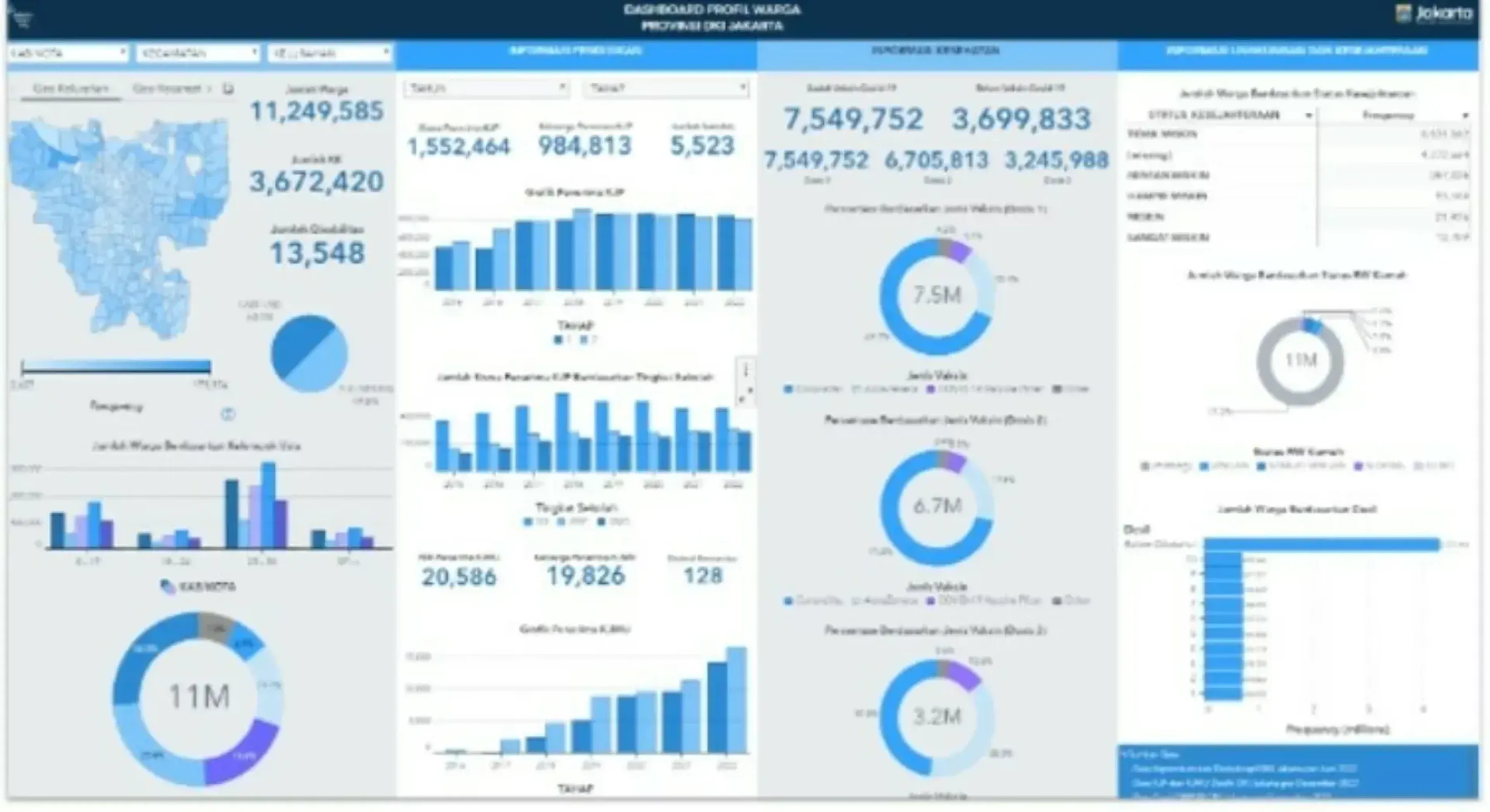Show The Thing 7: Indonesia - Jakarta Smart City
This is part of a series of blog posts for Show the Thing. Hosted by Public Digital and supported by the Rockefeller Foundation, Show the Thing brings together government digital teams from around the world. This month, we heard from experts in Indonesia's Jakarta Smart City initiative. They discussed the impact of the initiative on the capital city's social aid distribution.
As one of the world’s largest and most densely-populated cities, Indonesia’s capital city, Jakarta, presents a uniquely complex landscape for digital innovation.
On November 2nd, we were joined by Juan Intan Kanggrawan (Head of Digital Products and Data Analytics, Jakarta Smart City) for our 7th convening of Public Digital’s Show the Thing series.
Launched in 2014, Jakarta’s Smart City initiative is grounded in evidence-based decision-making to deliver services and applications that improve the lives of citizens. As part of the ACEAN Smart City Network, Jakarta’s Smart City aims to address the significant economic and social challenges of rapid urbanisation leveraging digital, data, and technology to develop citizen-centred solutions for fundamental urban challenges.
The session focused on the application of the Smart City initiative for the city’s social aid distribution - founded on the simple premise that systematic data analysis leads to better decision-making. Juan shared Jakarta’s approach to designing and delivering citizen-centred services through a demonstration of the mechanisms that support the initiative, and an explanation of the profound effects these are having on citizens.
Data-driven change
Jakarta has a population of 10 million, of which between 4-5 million receive social aid. The total aid budget for the city is approximately $300 million.
The task of ensuring this aid is distributed to its citizens correctly is a significant challenge for the city, requiring data collection on a vast-scale. It not only demands data integration from over 20 government agencies, including education and healthcare, but also the management of privacy considerations and varying formats, channels and mechanisms of data provision.
The Smart City initiative, and the 360 degree data analysis it enables, has proved transformative for delivering this function of local government.
In his presentation, Juan demonstrated a dashboard showcasing the Comprehensive Citizen Analysis & Systematic-Targeted Social Aid Distribution.

The analysis functions as more than simply a punitive mechanism to identify who is incorrectly receiving aid. Rather, it is actively redistributing, identifying and helping those most in need.
Furthermore, the insights are not only used to help individuals or groups - they also inform policy making. The data insights are fed back to government agencies and also shared with other government entities and organisations to drive wider decision-making.
Challenges and lessons
Developing this initiative has required years of strategic planning and long-term collaboration between numerous stakeholders.
Juan cited 3 significant challenges and lessons learned from a process that has spanned over 5 years.
Collaboration and coordination: By design, the government works in silos. Agencies largely focus on their own agendas and cross-departmental collaboration is not natural. Disrupting these silos has required patience and commitment, as well as a strategic bottom-up and top-down approach in forming cross-functional teams and divisions.
Data sharing complexity: There are up to 300 different agencies whose data feeds into Jakarta’s Smart City. Data maturity and quality amongst agencies differs enormously with some restricted to Excel - or even paper-based. These varying formats necessitate wide engagement and an approach built around compatibility. On top of this, Jakarta Smart City must also ensure compliance with national and regional policy around data.
Execution and operation: There are inevitable differences between what the data shows and recommends, and the complexities of what happens on the ground. Decisions and actions are sometimes restricted by political resistance and require pragmatism around timing, as well as patience and persuasion. Jakarta’s citizen reporting system is one mechanism that helps to provide greater clarity, producing up to 15,000 on-the-ground reports each month.
The future of Jakarta
Juan emphasised that the streamlined and highly usable dashboard he showcased did not reflect the work that went into it.
Data is inherently complex and untidy, whilst the politics surrounding its application is nuanced. But, by accepting these limitations, drawing on evidence, and putting data analysis at the centre of decision-making, Jakarta has helped more citizens access the support they need to improve their lives.
These successes are emblematic of what we have seen across our Show The Thing Series. Scalable digital success is built on a considered strategic approach and relies on cross-functional collaboration to bring about meaningful change.
Thank you
We would like to thank Juan and his team for their excellent presentation and, in particular, their demonstration of the dashboard which really brought to life the enormous reach of the initiative.
We were delighted to have our first presentation from outside of the national government, and also our first session focussing on data. We received excellent feedback for the session and really feel that it has widened the scope of the series.
With Juan’s permission, we also recorded his presentation and would encourage you to share this with your colleagues and teams.